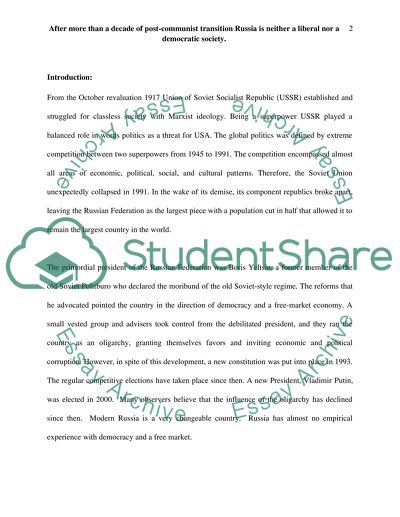Cite this document
(“Post-Soviet Russia Essay Example | Topics and Well Written Essays - 3000 words”, n.d.)
Retrieved from https://studentshare.org/politics/1513184-post-soviet-russia
Retrieved from https://studentshare.org/politics/1513184-post-soviet-russia
(Post-Soviet Russia Essay Example | Topics and Well Written Essays - 3000 Words)
https://studentshare.org/politics/1513184-post-soviet-russia.
https://studentshare.org/politics/1513184-post-soviet-russia.
“Post-Soviet Russia Essay Example | Topics and Well Written Essays - 3000 Words”, n.d. https://studentshare.org/politics/1513184-post-soviet-russia.


